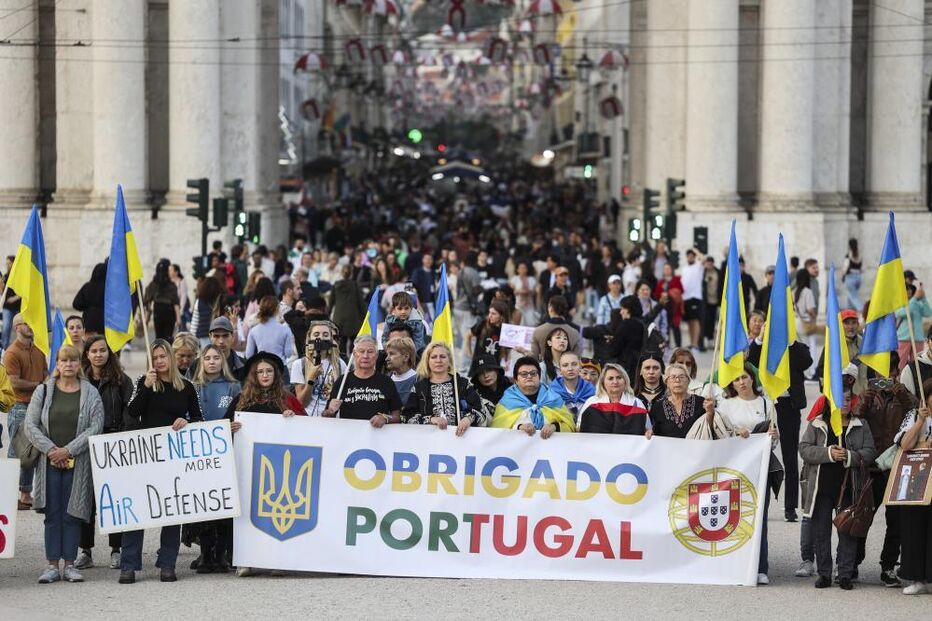Date coincides with US ‘ok’ for Ukraine to fire of long-range missiles into Russia
Three hundred people gathered in Lisbon’s Praça do Comércio yesterday afternoon to mark 1,000 days of the “terrorist war” in Ukraine, invaded by Russia in February 2022.
“We’ve endured a thousand days and we’re going to win this war,” Pavlo Sadokha, president of the Association of Ukrainians in Portugal told Lusa.
Believing that “the war can end when the political regime changes in Russia itself”, the leader of Ukrainians living in Portugal stressed that the conflict “is not between Russians and Ukrainians”, but between “terrorist, totalitarian regimes and Western democracies”.
This is underlined by the fact that North Korea has sent in soldiers as well as missiles and military equipment, while other totalitarian regimes, like Iran, are also supplying weapons on a regular basis.
Sadokha also rejects the idea that there may be less support for the Kiev regime today.
“There is always talk about Ukraine, aid is still coming in,” he said, suggesting more that there has been “no joint political will among the countries that have enough weapons to (…) remove Putin from power”.
Given that the Russian president “doesn’t want to end the war”, he said that he believes the only chance is that “political will” to fight the Moscow regime will bring an end to it.
To this end, Sadokha called on Europeans to overcome “the myth” of the so-called military superpower, since even “without sufficient weapons” the Ukrainians “have been holding off the great Russian army for 1,000 days”. (And if Russia was so all-powerful, why does it need to call in thousands of troops from another country?)
Ukraine’s ambassador to Portugal, Maryna Mykhailenko, was also at the event, reiterating that this war “is in the heart of Europe”.
Little is said about timelines in the media these days, but the Second World War followed Germany’s invasion of Poland: “Putin’s plans go much further than Ukraine, this is not about Ukraine, it’s about international order, European security, transatlantic cooperation”, she told Lusa.
Forming a circle facing the Tejo River and waving Ukrainian flags, demonstrators of all ages held placards calling for the release of “political prisoners” and “kidnapped children”, as well as messages thanking Portugal for having taken in so many Ukrainian refugees.
Thanks to Portugal were also part of many of the speeches at the microphone.
Presented as “the greatest friend of Ukrainians in the Portuguese parliament”, former Socialist MP Diogo Leão said that the war unleashed by the Moscow regime is “against every man and woman in the world”, expressing admiration for Ukraine’s resistance: “You are heroes.”
Maryna Mykhailenko recalled that at the beginning of the conflict, some experts gave Ukraine “just a few days”. “But we kept fighting until now. We have no choice. Ukraine wants peace more than anything, but we want a just and lasting peace,” she said.
Music was present at the gathering, both in the voice of a Ukrainian choir and a Portuguese musician who moved to Lviv with his wife at the start of the conflict and stayed there giving concerts planned to cheer up the Ukrainian people, who dream of waking up one day “without bombs falling” and “without news of deaths”.
Source material: LUSA




















